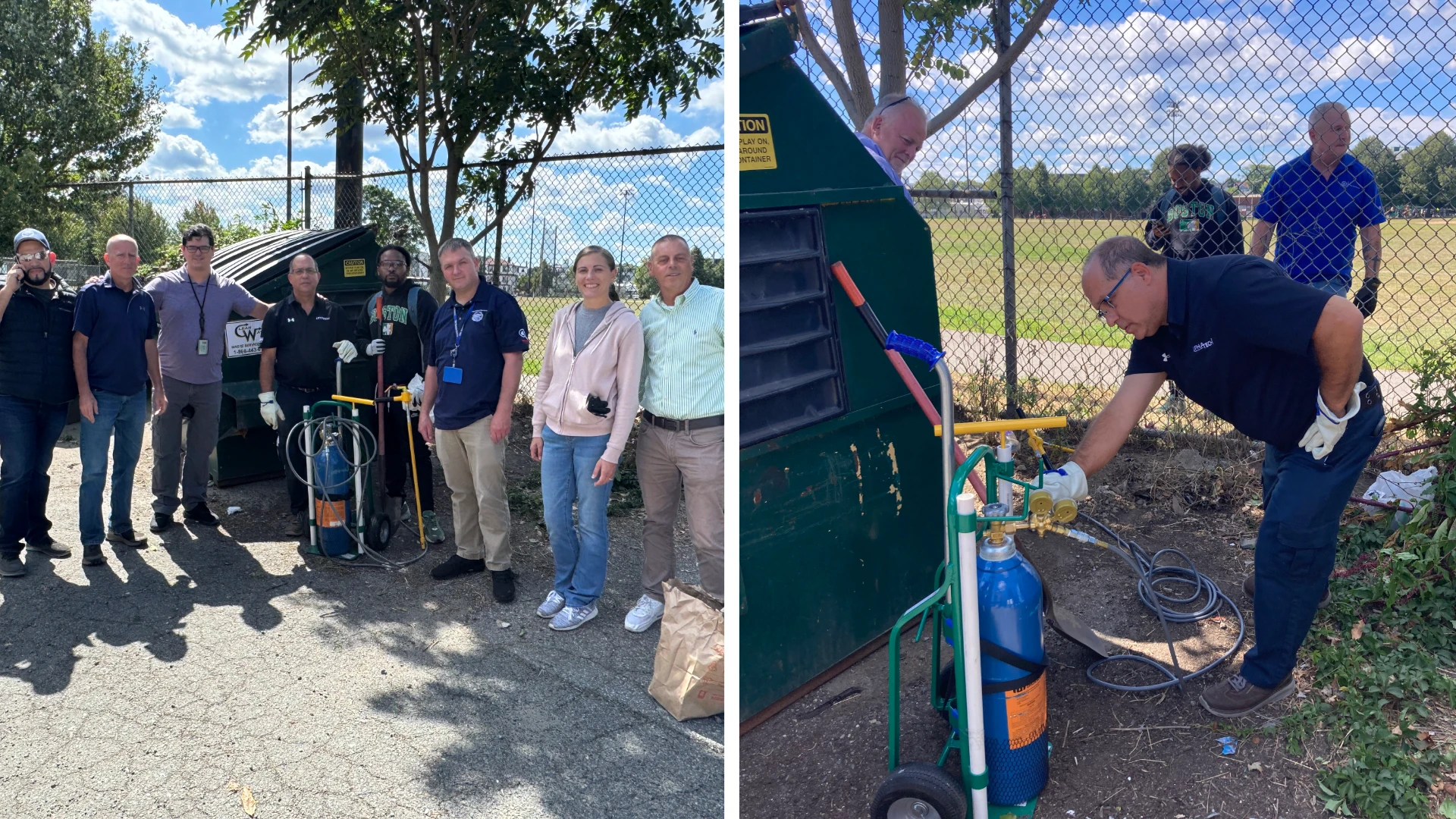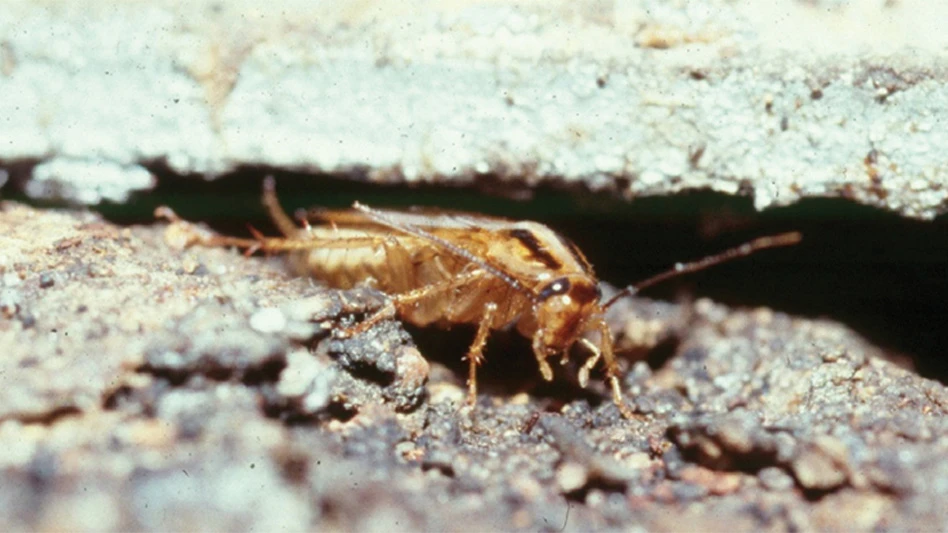
When Sarah Piburn was testing the flammability of products for Rockwell Labs Ltd, she discovered a problem. One of the products was below the desired flash point temperature, meaning the product could combust under 100°F if exposed to a spark. To fix this so the temperature would be between 100°F and 200°F, she had to tweak the formula by putting in less flammable material in exchange for more expensive material.
The complex formula of give and take helped Piburn understand cost efficiency. “It would be cheaper to ship a non-flammable product even though the cost to make the product had increased,” she said.
Piburn, only 19 years old, interned at Rockwell Labs as an aspiring engineer. She developed quality control processes for manufacturing and testing protocols in the chemistry lab, which has given her a head start at Missouri University of Science and Technology.
“The stereotypical internship includes doing a lot of clean up and observing whatever project the supervisor is working on,” said Piburn, a rising sophomore studying environmental engineering. “Instead, at Rockwell Labs, I was treated like an adult and given the freedom to be able to start and finish projects independently while still being able to ask for help and be guided in the right direction.”
Rockwell Labs’ internship program looks for high school and college-level women to work in the chemistry and manufacturing areas. Internships within the pest control industry are still a fairly new concept, but owner of Rockwell Labs Cisse Spragins said exposing her company to students has been worthwhile and can help other companies grow too.
HOW TO START. If pest management companies or suppliers want to begin offering internships, Spragins said the best way is to visit schools and colleges in your area and ask if they have mentoring programs or if there is a way to visit and speak on behalf of the company.
Companies must determine what schools and regions they’re willing to reach out to with incentives such as wages or college credit. Karen Bradford, director of Rollins human resources, said the firm offers room and board on top of hourly pay and college credit for its Orkin interns. “Rollins’ plan for Orkin field interns is ultimately a job offer after they graduate,” she said. “We’re planting the seed that could ultimately leave us with a permanent hire.”
Employers are making a conscious effort to recruit those about to enter the workforce as well as try to eliminate possible stigmas associated with pest control.
“One of the biggest things that come away from internships are the words ‘I didn’t know,’” Jeff Dunn, leader of sales for Northwest Exterminating, Marietta, Ga., said. “(Interns) have a print image of pest control companies before they come in. They may think that it’s a guy that sprays the house (who) can’t have a good income. (But they) can progress from service to sales to sales to management to a leader within the organization.”
No matter how young a company recruits, Dunn said it pays off long-term.
“Jokingly, who wakes up and says, ‘I want to kill bugs when I grow up?’” said Bradford. “Even the entomology-degree-seeking students, we know they’re not afraid of bugs, but it’s not first and foremost in their minds to come and look for a pest control company either.”
HELP WANTED. Two years ago Rockwell joined a program with other companies that recruits high schoolers in the North Kansas City, Mo., area. “They have an internship program for certain areas of study that students can apply to get into,” Spragins said. “We specify that we want women that are interested in science or engineering-related areas.
“I want to encourage young women to go into those areas because they’re under-represented,” Spragins said. “I think it helps people to have a role model and have some practical experience at a young age so they can decide if they like a particular area.”
Spragins said the interns learn in both the company’s chemistry lab and manufacturing area. In the lab, they work on quality control and product development, while on the manufacturing side they assist the director of operations with different initiatives related to setting up new machinery and product quality.
All three women interns from the spring and one from the year before returned for the summer, which instead of counting for school work, is a full-time paid position.
“Although women are the minority in this field I think there is a huge appeal, not only for the abundance of jobs, but we have a different and innovative way of thinking and problem solving to add to the field,” Piburn said.
Though in the lab, the interns are not conducting advanced work (due to their lack of experience), but Spragins said the projects are similar to what a lab technician would do if they were employed at the company.
At Orkin, if students are hired as field interns early enough, Bradford said they are eligible to work three summers, rotating through different areas of the organization. The first summer is 10 weeks at Orkin’s call and service center, the second summer is in the company’s field offices in pest control sales and service, and the third is field termite sales and service.

“We launched the field internship program in one university to be sure we got it right. It was easy to choose Texas A&M because of our long-standing relationship,” Bradford said of the two-year-old program. “We’re partnering with the entomology department there and offer internships to entomology degree-seeking students.”
Dunn, who is responsible for recruiting, hiring and training sales teams at Northwest, looks for students in college studying business-related areas for his sales operations internship. Unlike Rockwell, Northwest looks for those who aspire to become business professionals instead of science professionals. “They spend their time riding around with those sales professionals,” Dunn said. The selling is observational, meaning interns do not go out and directly sell to customers, but instead watch tactics and transactions that the Northwest employees employ. The Northwest summer internship is going on its sixth year and the company compensates hourly and offers credit-hours for college students. In the beginning, a majority of the applicants were referred by friends and family of Northwest employees, but Dunn said the company started to contact technical schools and other colleges within the area so any student can apply.
Northwest interns also perform research on other companies — Should the firm enter a new market? What services are competitors selling? Where are they selling them? What are their prices?
“We recently got into heating and cooling. Not too long ago we got into lawn care,” Dunn said. “We have interns break down some competitive intelligence for this.” VALUED OPINIONS. The key to an ideal internship program is finding out what is working and what isn’t, said Bradford. “We wanted to make sure we developed a program that met expectations for everyone,” she said. “Interns check in weekly in writing. We also interview their parents. We use all of the feedback from the employee, the parents and the manager to tweak the program while it’s in motion.” Dunn said Northwest learned to use a mentoring system so the interns only have one person to report to if something needs to be addressed. “We want to make ourselves better for fresh eyes and of course we want to have a chance of being the first ones to interview these individuals when they do graduate,” Dunn said.
Hiring interns can be one of the best and the most rewarding investments a company can make, Spragins said. “Have a pretty open mind on what these students can do,” Spragins said. “It enables us to get projects done that may have been on the backburner and it’s a good experience for them as well.”
The author is an editorial intern (seriously!) for PCT magazine.

Explore the November 2016 Issue
Check out more from this issue and find your next story to read.
Latest from Pest Control Technology
- In Memoriam: Joe Cavender
- Liphatech Adds Alex Blahnik to Technical Team
- Do the Right Sting: Stinging Insect Identification, Management, and Safety
- VAGA's 8th Annual Veterans Thanksgiving Appreciation Dinner
- Clark's Blair Smith on the Response to Increased Dengue Fever Cases in Southern California
- WSDA, USDA Announce Eradication of Northern Giant Hornet from U.S.
- Ned’s Home Acquires Ultra Safe Pest Management
- Bed Bugs & Dirty Clothes





